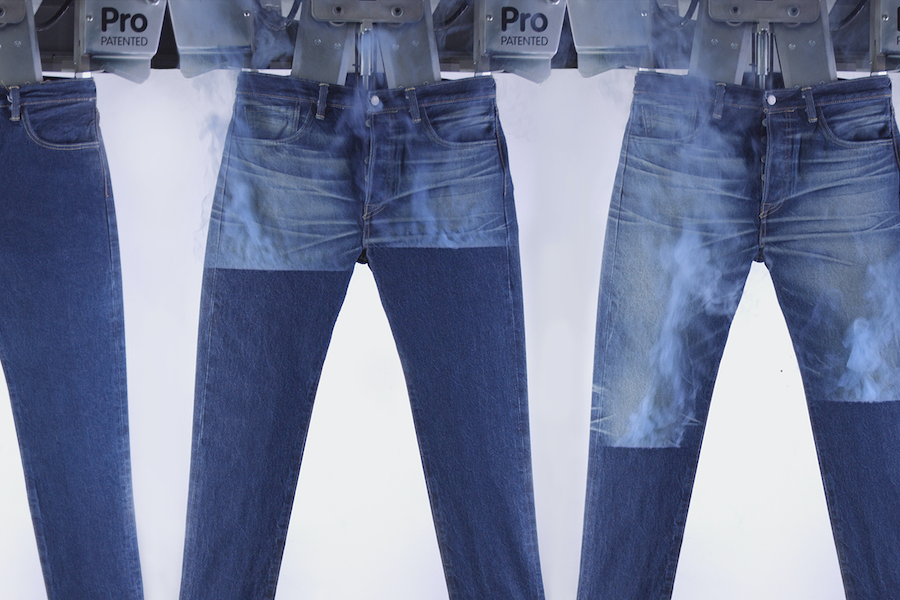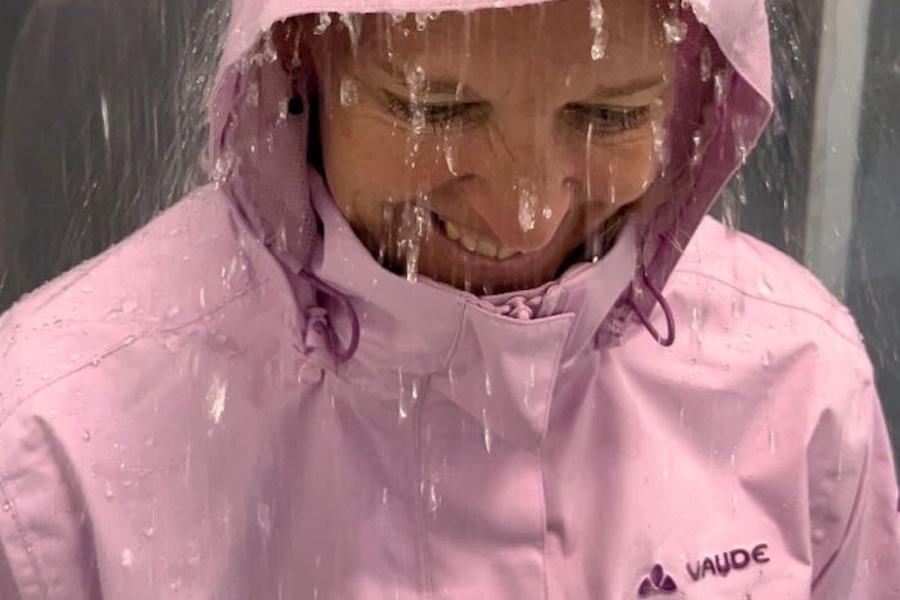#Sustainability
Fashion industry trade policy request | COP26
• Over 50 brands, suppliers, retailers, NGOs, and industry associations are supporting a request to governments for trade policy to incentivize the use of environmentally preferred materials.
• Presented by Textile Exchange at COP26, the request calls for preferential tariffs on materials like organic cotton and recycled fibers.
• Using trade policy to incentivize better practice in raw materials sourcing would be a ground-breaking use of legislation to level the playing field for fashion and textile companies looking to lower their environmental impacts.
• The request supports Textile Exchange’s aim to accelerate progress towards its industry goal of a 45% reduction in greenhouse gas (GHG) emissions from textile fiber and material production by 2030, in line with the Paris Agreement.
The global apparel and textile industry, which generates over $1.5 trillion in annual revenue and used 109 million tons of fibers in 2020, is actively working to be part of the solution to the climate crisis.
Over 50 companies and organizations have joined forces to ask for policy change to incentivize the use of environmentally preferred materials such as organic cotton and recycled fibers.
The request, presented at COP26 by global non-profit Textile Exchange, is a practical solution to help the industry achieve its climate goals with an important but often overlooked policy lever: trade policy.
Cost is one of the key barriers faced by companies looking to shift their supply chain towards environmentally preferred materials. But by mitigating or narrowing price premiums, trade mechanisms can be used to incentivize the increased production and adoption of these fibers, making them more favorable than, or at least equal to, their conventional counterparts.
Using trade policy to incentivize better practice in materials sourcing is a ground-breaking use of legislation for the industry, working alongside regulations and penalties to promote positive action instead. It has the potential to level the playing field financially for companies committed to better materials sourcing, without the reduction in cost being felt by their supply chain or the farmers who grow the fibers.
Environmentally preferred materials should be defined as those from certified, verified sources that can be traced from raw material to finished product, and that are connected to data-driven environmental impact reductions. Organic cotton typically has a lower carbon footprint than conventional cotton, for example, as is the case with recycled polyester when compared to virgin polyester.
Textile Exchange has, for years, been positively impacting climate by accelerating the use of these materials across the fashion and textile industry. Today, it is uniquely positioned to work with governments to identify what is needed to qualify for incentives as an environmentally preferred material in a particular context, and how these credentials should be verified.
The policy request builds on Textile Exchange’s Preferential Tariff Project, initiated in 2018, which explored incentives such as tax credits and/or suspension or duty reductions of an imported component or finished, certified product.?It provides governments with a tangible action to remove a key barrier to scaling environmentally preferred materials: increased cost. Since nearly all major fashion producing and consuming countries have signed the Paris Agreement, it is addressed to every government present at COP26
With the recognition that appropriate policy initiatives may differ by jurisdiction, in this critical moment at COP26, Textile Exchange urges policymakers to consider working with the apparel and textile industry to develop thoughtful trade policy mechanisms in this area.
In turn, this would enable achievement of Textile Exchange’s industry goal of a 45% reduction in greenhouse gas (GHG) emissions in the pre-spinning phase of textile fiber and material production by 2030.
Supporting Quotes:?
Accelerating Circularity demonstrates how to put textiles to good use through building circular systems. We support preferential treatment of the materials that will enable the industry to meet our GHG reduction goals. Policy is an essential lever that can incentivize circular textiles system growth. We firmly stand behind this initiative as a positive path forward for the textile industry.
Karla Magruder, Founder, Accelerating Circularity
We must send one signal to the market with a shared definition and a cohesive movement as we double down on reaching targets for carbon emissions reductions. This will only be possible through an agreed policy for preferential tariffs with preferred materials.
Lewis Perkins, President, Apparel Impact Institute
Using environmentally preferred materials has been pivotal for Chloé to start our GHG emissions reductions. Of course, supply chain of such materials can be challenging, and we must encourage more and more farmers, growers, textile companies and designers to use organic and recycled natural fibers. We fully support better practices incentivizing trade policies that will help the spread of environmentally preferred materials: these are strong levers enabling higher quality products with innovative design, while reducing our global environmental footprint.
Christophe Bocquet, Fair Sourcing and Quality Director, Chloé
Scaling preferred materials, and driving the innovation of next generation materials, is pivotal in meeting the industry’s ambitious, but necessary, climate goals. Policy instruments, notably preferential tariffs are key levers to incentivize the industry to increase the uptake and accelerate the development of materials that can significantly decarbonize the industry. Fashion for Good wholly supports the efforts led by Textile Exchange to collaborate with policy makers in fostering an industry that encourages and supports innovative technologies to reach scale.
Katrin Ley, Managing Director, Fashion for Good
Sourcing more preferred fibers such as recycled polyester and organic cotton is an essential part of Gap Inc.’s efforts to reduce the impact of our products, and enabling us to progress against our climate and product sustainability targets. Supporting this transition via lower tariffs on these products helps the apparel industry move swiftly towards a more sustainable future.
Judy Adler, VP Environment, Social, and Governance (ESG), Gap Inc.
Global Fashion Agenda fully supports Textile Exchange’s call for incentive policies. Leaders at COP26 have the power to drastically reduce fashion’s greenhouse gas emissions in line with the Paris Agreement if they implement informed and impactful measures. Incentivising the use of environmentally preferred materials will help to break down the cost barrier, making sustainable material alternatives more accessible and enticing for fashion companies to utilise.
Federica Marchionni, Chief Executive Officer, Global Fashion Agenda
For the fashion industry, incentivizing traceable, lower impact and alternative materials is key to driving change. Currently there is nothing to induce uptake in trade policy and this makes no sense given the state of our planet. We need both regulation and incentives to reward positive action in fashion’s ecosystem. At Kering we encourage policymakers to rethink import duties to adapt, support and respond to the fashion industry’s pursuit of sustainability and contribution to a low-carbon economy.
Marie-Claire Daveu, Chief Sustainability and Institutional Affairs Officer, Kering
As a global company with production sites in different continents, we can only underline the importance of thoughtful trade policies to achieve the industry’s ambitious climate goals.
Florian Heubrandner, Vice President of Global Textile Business, Lenzing
For many years we have known the benefit to the environment and particularly the climate by switching to environmentally preferred fibres such as organic over conventional cotton and yet organic still counts for less than 1% of global cotton production. To take responsible production and consumption from niche to norm requires government policy intervention to mitigate the high cost and sourcing challenges associated with preferred fibres over chemical-laden and carbon-heavy conventional fibres. The few businesses that have embraced responsible production across the board should be rewarded and incentives should be given for all companies to follow suit. Similarly policy incentives for growing or manufacturing preferred fibres would benefit producing countries. There are clear and simple policy levers governments can use including various tax incentives that will enormously help to shift the textile sector from profit only business models to a triple bottom line model. (People, Planet, Prosperity). This would benefit textile businesses of all sizes across the globe to improve their climate impact. We urge all governments to embrace Textile Exchange’s request for policy reform on environmentally preferred materials.
Prama Bhardwaj, CEO & Founder, Mantis World
Patagonia is happy to support an initiative that incentivizes brands maximizing the benefit of today’s solutions in Preferred Materials. Patagonia has enjoyed a 17% reduction in product carbon intensity as a result of scaling recycled polyester, recycled nylon, organic cotton, and other environmentally preferred materials, and we believe that the carrot of preferential tariffs on products containing these materials is a huge unlock for adoption. Textile Exchange continues to lead in certification of these supply chains, able to answer the very important question of “how do you know?”
Matt Dwyer, VP Product Impact and Innovation, Patagonia
We’re proud to support Textile Exchange’s initiative to accelerate the global adoption of low impact materials. We believe that investing in sustainable solutions is essential to changing the industry and improving accessibility for all. At Piping Hot, we focus on scalable solutions to make sustainability affordable for families. There is measurable scientific data to demonstrate the carbon emission reductions achievable by moving away from conventional fibres. We can contribute to 2030 emission targets by making low impact materials affordable.
Amy Low, Brand and Marketing Director, Piping Hot Australia
Reformation was founded with sustainability at its core—to prove that fashion and sustainability can coexist. We believe that sustainable fashion isn’t about one solution, but many, and with a focus on supply chain and cleaner materials there can be significant progress in the industry. We are energized by the action that Textile Exchange is taking to help mitigate the barriers that so many companies face when exploring environmentally responsible materials.
Kathleen Talbot, Chief Sustainability Officer & VP Operations, Reformation
The fashion industry is poised for massive change, but the transition to low impact materials and value chains needs a supportive policy environment. I support the call for policy measures that reduce the barriers to scale and rapid adoption for preferred materials and technologies in fashion.
Patrik Lundström, CEO, Renewcell
Governments need to step up by enforcing supply chain transparency, materials traceability and data-driven environmental impact measurement standards. I am proud that we release our Environmental Impact Report (previously EP&L) report annually, which measures our impacts and helps us understand them. If not, how else would we guide innovation? Governments can actively support change by incentivising better materials in order to shift the fashion industry in a more nature-positive direction and reduce its contributions to the climate and biodiversity crises before it is too late.
Stella McCartney, Creative Director, Stella McCartney
Organic Cotton requires significant investment in order to increase its share in the global cotton market. Preferential tariffs for this and wider environmentally preferred materials are an important part in helping us all to achieve this goal collectively.
Julian Dunkerton, CEO, Superdry
At tentree, we understand that the fashion industry needs to take urgent action for climate change. As part of our commitment to sustainability, tentree uses 98% preferred materials. With rising costs of raw materials and logistics in the industry, it is essential that businesses are supported with preferential tariffs. Profit and sustainability need to be aligned if we are going to reach climate targets. Preferred materials need to be the norm and not the exception to transform the industry.
Kathleen Buckingham, Director of Sustainability, tentree












